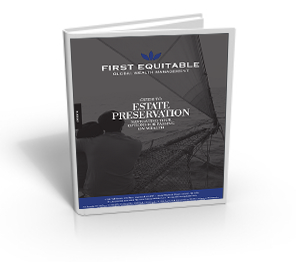How can I avoid Inheritance Tax?

You are likely to have worked hard for the wealth you are worth when you die. This may take the form of property, other assets, money and possessions. So, you are likely to want to make sure that your estate passes to those you intend to leave it to.
Inheritance Tax (IHT) is based on the principle of redistributing some of your wealth through the tax system, rather than the whole value being passed on to your chosen beneficiaries.
The good news is that there are ways of minimising your inheritance tax liabilities, so that your wealth can be enjoyed by those whom you want to enjoy it.
Rates
The current rates – in the financial year 2016 to 2017 – grant a tax-free allowance of £325,000, and tax at a rate of 40% on any amount in excess of that sum.
With effect from the next financial year (2017 to 2018), a further Transferable Main Residence Allowance (TMRA) – starting at £100,000 – is to be added to the basic allowance and increased to £175,000 by the year 2020/2021. At that stage, therefore, inheritance tax becomes payable only on any amount in excess of £500,000 – this is illustrated in a simple table published by the BBC in April 2016.
As the government’s official overview of Inheritance Tax explains here, any unused part of the current £325,000 allowance may be passed on to a spouse or civil partner, thus making the maximum potential allowance of £650,000 – and, with the addition of TMRA, a combined potential allowance of £1 million by the financial year 2020/2021.
8 ways to maximise your money – and save on IHT
In addition to being married or in a civil partnership, here are 8 more tips and suggestions for minimising your Inheritance Tax liabilities:
Make a will
- in addition to your Inheritance Tax allowance, your liabilities are also determined by the type of assets you are leaving and who you are leaving them to. By making a will, you leave no room for doubt about those intentions;
- some assets – such as your business, property that is considered to have heritage value, and agricultural property – are exempt from Inheritance Tax as are some beneficiaries that you name in your will, such as your spouse or civil partner, some charitable bequests and certain donations to political parties;
Make sure you keep below the nil-rate band
- as mentioned, your current tax-free allowance as far as Inheritance Tax is concerned in £325,000 – or up to £650,000 in the case of a couple – and by the year 2020, these allowances will have risen to £500,000 and £1 million respectively;
- if you keep the value of your estate below these limits, therefore, you pay no Inheritance Tax;
Give gifts to your children or grandchildren
- whether or not you have to pay Inheritance Tax on property, money or other assets you have gifted to children or grandchildren depends on the value and how long before your death you gave those gifts;
- if gifts totalled more than £325,000 and you die within the next 3 years, there remains a 40% tax liability on the amount exceeding the allowance – if it is longer than seven years since you made the gift, however, there is no tax to pay (with a sliding percentage scale if you die between 3 and 7 years are making the gifts);
Put assets into a trust
- when you put assets into trust, they no longer belong to you, but to the trust itself – and the Inheritance Tax liability no longer falls to your estate;
Take out life insurance
- If your heirs are going to be faced with an IHT bill on your death, then one solution can be to take out a life insurance policy against your life for the expected amount of the liability. By putting the life insurance policy into trust it will help to ensure that the benefits are paid out immediately to your beneficiaries upon your death, without the need for probate to be granted, and as the policy is held under trust it won’t be liable for Inheritance Tax;
Give to charity
- if you use your will to donate to charity, the value of your donation may be deducted from the value of your estate before any Inheritance Tax liability is calculated;
- if you donate more than 10% of the value of your estate to charities, your Inheritance Tax liability is charged at a reduced rate;
AIM Shares
- any unquoted shares you buy on the London Stock Exchange AIM market (one for small and growing businesses) are exempt from Inheritance Tax liabilities once the investment has been held for at least two years; explains a guide to AIM shares published by the London Stock Exchange.
Invest in a business
- although your ownership of a business, or shares in it, is otherwise included in your estate for Inheritance Tax purposes, you may qualify for Business Relief of between 50% and 100%, before or after your death.
Summary
Even this very brief overview may help to illustrate some of the many options and complexities in managing your Inheritance Tax liabilities.
Effective Inheritance Tax planning is a complicated area of financial planning and to safely tread the line between tax avoidance (which is illegal) and tax evasion (which is not), you would be best advised to consult a qualified Independent Financial Adviser (IFA), duly authorised and regulated by the Financial Conduct Authority (FCA) before arranging your Inheritance Tax affairs.
At First Equitable we work diligently with our clients, helping them to navigate through the myriad of different options that exist to achieve positive outcomes for their, and their heirs, future financial security.
If you have a query regarding Inheritance Tax planning, and would like to receive some helpful advice in a language you can understand, please complete our contact form and an adviser will be in touch to discuss your needs.




